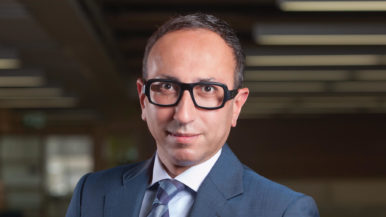David Frum’s laughable defence
Predictably, the U.S. government renounced Conrad Black’s arguments in favour of his remaining free on bail pending appeal. As reported in a CP wire story, prosecutor Edward Siskel was particularly contemptuous of Black’s contention that evidence presented at trial “was insufficient to support his corrupt intent for the obstruction of justice conviction.” Retorted Siskel:
For Conrad Black, a man with teams of lawyers, who was never before seen lifting or carrying boxes at 10 Toronto Street, to walk into a back stairwell of the building after hours—after scanning for security cameras that might catch him in a prohibited act—and remove those boxes himself, knowing that his secretary had been strictly forbidden to take the boxes from the premises earlier in the day, and knowing that the SEC and federal criminal authorities were investigating him and making their own demands for documents and information in order to pursue him… All of that evidence, plus the jury’s evaluation of the credibility of both government and defence witnesses on the topic, supports the jury’s finding.
St. Eve should settle the matter one way or the other before the end of next week.
Also, forthcoming in the National Review is a rundown of Black’s latest book, Richard M. Nixon: A Life in Full. The reviewer is long-time Black ally and fellow neo-con David Frum. The review itself is fluent and praising, though in a passing moment Frum offers a glittering example of fellow feeling trumping common sense. Writes Frum:
Black is a writer of severe restraint and martini-dry wit. Still, he allows himself one personal editorial comment on the meaning and legacy of Watergate, one that expresses his deep—and well-founded—anger at the way in which he was put to trial on the self-serving testimony of his former business partner:
“The American prosecutorial system encourages a system of suborned or intimidated perjury, or at least spontaneous clarity of recollection, to move upwards in the inculpation of officials in any organization where wrongdoing is alleged. Plea bargains are negotiated by threat and financial strangulation and reduction of penalties, as lower echelons roll over in sequence blaming higher-ups.
“It is a questionable system, which [has led] to the installation of the ‘whistleblower’—i.e., the squealer—as one of the central figures in American commerce. This process is topped out with the ‘allocution,’ as the plea-bargainer denounces himself like the tortured victim of Stalin’s show trials. Since the purpose of the plea bargain, for the confessant, is to reduce his sentence, the United States at least avoids the splendid Stalinist flourish of the accused demanding the swiftest possible imposition of the death penalty on himself.”
Much of this is arguably to the good, but to describe Black as a writer of “severe restraint” beggars credulity. This is the same guy who wrote, in fending off a bunch of grouchy shareholders, that he wasn’t “prepared to re-enact the French Revolutionary renunciation of the rights of the nobility.”
Trial by fire: Source [American Enterprise Institute]
Conrad Black shouldn’t get extra time away from jail, U.S. prosecutors say: Source [CP]
Black’s portrait up for bids next week: Source [Globe and Mail]





